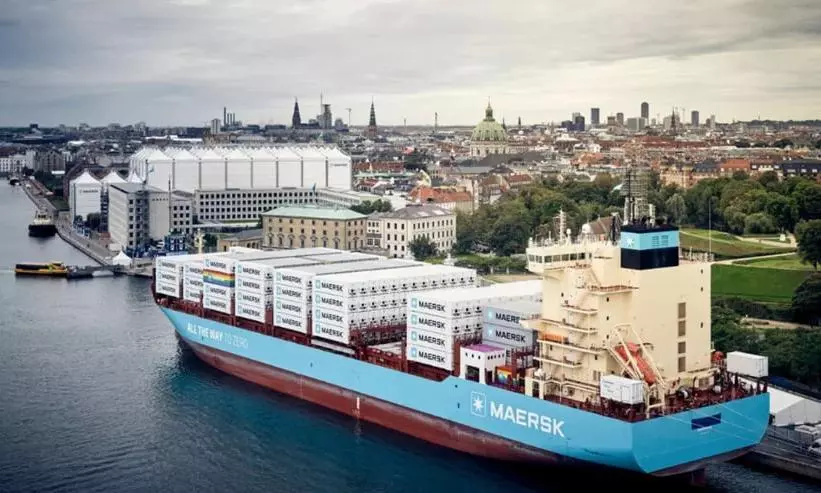Maersk, LONGi sign deal for methanol, first volumes expected in 2026
Agreement with LONGi to deliver bio-methanol produced at a facility in Xu Chang, Central China.

Danish carrier Maersk has signed a long-term bio-methanol offtake agreement with LONGi Green Energy Technology Company.
The agreement will contribute to lowering greenhouse gas (GHG) emissions from Maersk’s growing fleet of dual-fuel methanol container vessels, says an official release from Maersk.
“Bio- and e-methanol continues to be the most promising alternative shipping fuels to scale up in this decade, and the agreement with LONGi serves as a testament to this," says Rabab Raafat Boulos, Chief Operating Officer, Maersk. "Global shipping’s main net-zero challenge is the price gap between fossil fuels and the alternatives with lower greenhouse gas emissions. We continue to strongly urge the International Maritime Organization’s member states to level the playing field by adopting a global green fuel standard and an ambitious pricing mechanism which the industry urgently needs."
With the addition of LONGi volumes, Maersk is making progress in securing methanol for its owned dual-fuel methanol fleet of which seven vessels are already in operation, the release added. "Maersk’s combined methanol offtake agreements now meet more than 50 percent of the dual-fuel methanol fleet demand in 2027."
Emma Mazhari, Head of Energy Markets, Maersk says: “While we believe that the future of global logistics will see several pathways to net-zero, this agreement underscores the continued momentum for methanol projects that are pursued by ambitious developers across markets. China continues to play a pioneering role, and it is encouraging to also see strong market developments in other geographies as well. One example is the US where we are engaging closely with several promising projects."
The agreement with LONGi will deliver bio-methanol produced at a facility in Xu Chang, Central China, and the fuel would be produced from residues (straw and fruit tree cuttings), the release added.
First published on logupdateafrica





